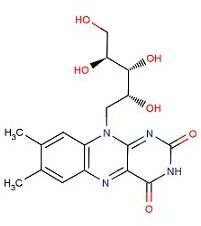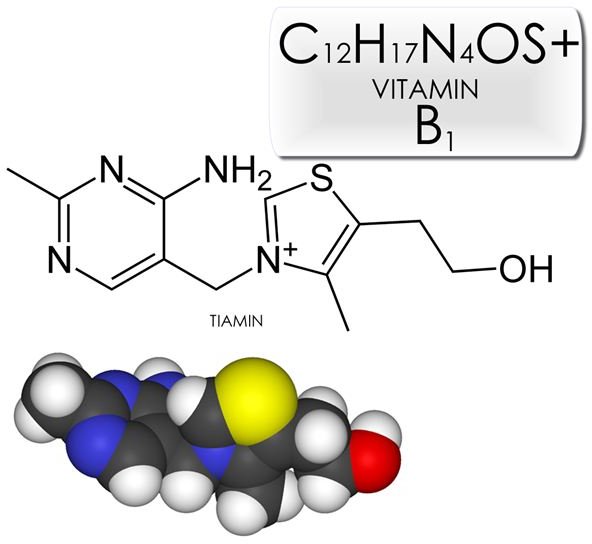Pregnancy and Vitamins - Tips for a Healthy Diet During Pregnancy
Vitamin C
The major vitamin required for the proper growth of the fetus is vitamin C. Vitamin C is an antioxidant that forms collagen, which prevents the damage of tissues, helps in absorbing iron, calcium and phosphorous, and in developing an immunity system. All citric fruits like oranges, tangerines, grapefruit, tomatoes, black currants, melons, and strawberries, and vegetables like cabbage, lettuce, carrots, radish, brussel sprouts, watercress, and broccoli are rich sources of vitamin C. One point to note is that cooking or heating foods destroys the vitamin C available in the food.
The recommended daily dosage of vitamin C during pregnancy is 85 mg, which comes from drinking a small glass of orange juice.
Vitamin A
Vitamin A aids in the baby’s embryonic development, especially bone growth, development of teeth, eyes, heart, limb, and ears, resistance to infection and metabolism of fat. Good sources of vitamin A include fish oils, egg yolk, milk, cheese, butter, margarine, bananas, peaches, apricots, carrots, brussel sprouts, spinach, tomatoes, turnips, and beetroots.
Warning: an overdose of vitamin A during pregnancy could lead to birth defects and liver toxicity for the newborn. The optimal quantity of Vitamin A required is about 770 micrograms RAE each day during pregnancy. Liver from beef, veal or chicken contain Vitamin A far in excess of this stipulated limit, and for this reason, experts recommend curtailing the intake of such foods during pregnancy.
Vitamin D
Vitamin D helps maintain proper levels of calcium and phosphorus, which in turn helps build the bones and teeth of the baby in the womb. Good sources of vitamin D include fish oils, fish extracts, animal fats, eggs, milk, and milk products. The required quantity of Vitamin D is five mcg per day, which comes with a few glasses of milk.
Vitamin E
Vitamin E aids in the formation of red blood cells and muscles. Recent studies have also indicated that mothers with low vitamin E intake during pregnancy are more likely to have asthmatic kids. The main sources of vitamin E are vegetable oils like sunflower, rapeseed, corn, margarine, wheat germ, nuts and sunflower seeds. Eggs, milk, butter, cheese, unpolished rise, spinach, fortified cereals, whole-wheat bread, and wheat also contain vitamin E in limited amounts.
Thimine
Thiamine or Vitamin B1 converts carbohydrates into energy, aids in the unborn baby’s brain development, and ensures the normal
functioning of the brain and the heart. Good sources of thiamine include beans, peas, all kinds of nuts, wheat, crude rice, soya bean, yeast, eggs, liver, kidneys, brain, heart, seafood and fish oils. The required quantity of thiamine is 1.4 mg a day, which comes from normal consumption of whole-grain bread or fortified cereals.
Image Credit: hr.wikipedia.org
Riboflavin (Vitamin B2)

Riboflavin or vitamin B2 helps in boosting energy levels, and thereby promotes growth, good vision, healthy skin, strong bones, and development of nerves inside the fetus. Lack of sufficient riboflavin during pregnancy could lead to the infant being prone to anemia, digestive problems, brittle bones and a suppressed immune system. Sources for riboflavin include all kinds of meat, liver, kidney, heart, brain, all kinds of fish, all kinds of nuts, milk, cheese, cream, yeast, whole wheat, peas and beans. The recommended daily dosage of riboflavin for pregnant women is 1.4 mg, which comes from 3 cups of non-fat yoghurt or 3 oz. of chicken lever.
Image Credit: Wikimedia Commons
Vitamin B6
Pyridoxine or vitamin B6 aids the metabolism of protein, fats, and carbohydrates. They also help convert amino acids and form new red blood cells, antibodies, and neurotransmitters. All these are vital to the fetus’s developing brain and nervous system. Brown rice, lean meats, poultry, fish, avocados, whole grains, beans, corn, and nuts are high in vitamin B6. The recommended daily intake of Pyridoxine is 1.9 mg a day. A medium sized banana or baked potato contains 0.7 mg of Pyridoxine.
Folic Acid
Folic acid or vitamin B9 is a building block of cells and essential for the production, repair and functioning of DNA. This vitamin aids in the rapid growth of the placenta and helps prevent serious birth defects of the spinal cord, brain, and heart, besides anemia and preeclampsia, a complex health disorder. Most fruits, vegetables, green leafy vegetables, liver, and kidney contain folic acid. The required daily intake of folic acids during pregnancy is 400 micrograms.
The U.S. Food and Drug Administration (FDA) requires food manufacturers to add folic acid to enriched grain products such as breakfast cereals, bread, pasta, and rice so that each serving contains at least 20 percent of the daily requirement.
Pregnancy and Vitamins
A steady inflow of vitamins is imperative for the proper growth of the fetus, and due to this reason many medical practitioners provide vitamin supplements when a natural diet does not provide the unborn child with the required amount of vitamins.
In this context, mention should be made of the fact that cooking food in non-insulated copper pots leads to the copper reacting with food and destroying vitamin C, vitamin E and folic acid.
Disclaimer
This article does not constitute medical advice. The author or the publisher does not intend to provide medical advice. Do not initiate dietary changes or intake of supplements based on information in this article without first consulting a physician.
References
- Daniells, Stephen (2006). “Vitamin E during pregnancy could cut asthma in kids”. Retrieved from https://www.nutraingredients.com/Research/Vitamin-E-during-pregnancy-could-cut-asthma-in-kids. Retreived 2009-04-27.
- “Eating Well” https://www.babycenter.com/eating-well-during-pregnancy Retrieved 2009-04-27
- Rush D, Stein Z, Susser M. (1980). “Diet in pregnancy: a randomized controlled trial of nutritional supplements.”
- Somer Elizabeth (2002). “Nutrition for a Healthy Pregnancy: Nutrition for a Healthy Pregnancy: The Complete Guide to Eating Before, During, and After Your Pregnancy.” Edition: 2, illustrated, revised. Henry Holt, 2002
- Thomson, A.M. (2007). “Diet in pregnancy.” British Journal of Nutrition, 2007. Cambridge Universal Press
This post is part of the series: Pregnancy Nutrition
Learn the ins and outs of pregnancy nutrition, including foods that you should be eating and foods that aren’t safe.
- What Are the Best Foods to Eat During Pregnancy?
- Getting Enough Calcium During Pregnancy
- Essential Vitamins for a Healthy Pregnancy
- Diet During Pregnancy: Consequences of a Poor Diet
- What Vitamins are Needed During Pregnancy?
- Nutrition During Pregnancy - A Healthy Diet
- Pregnancy Food Guide: What to Eat and What Not to Eat
- Healthy Weight Gain Tips for Pregnancy
- Eating Iron-Rich Foods During Pregnancy
- How to Avoid Gaining Too Much Weight During Pregnancy
